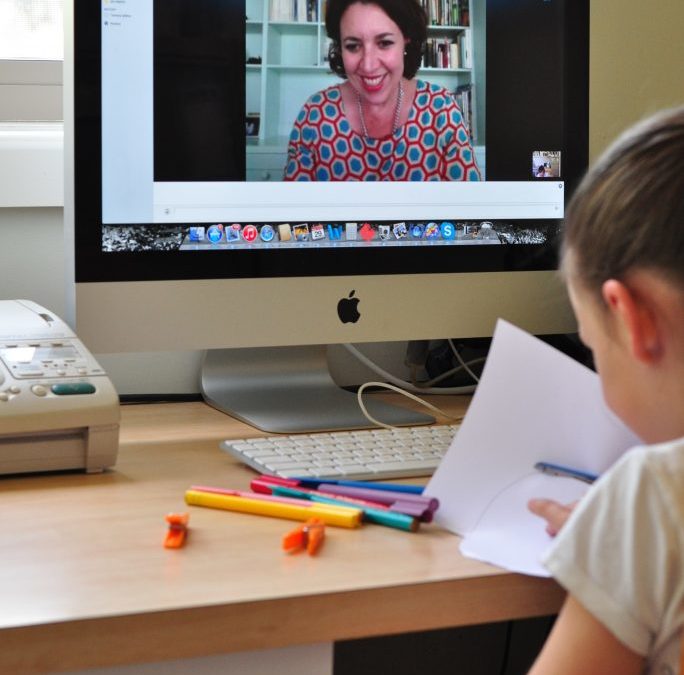For many, anxiety goes unnoticed, a silent undercurrent in daily life. However, its impact can be profound, affecting personal and professional realms alike. Understanding anxiety and its effects is not about medical jargon, it’s about grasping how these anxious waves can capsize our sense of normalcy. Here, we untangle anxiety’s grip on behaviour and physical symptoms and provide evidence-based pathways to resilience and wellbeing.
Key Takeaways
- Anxiety becomes a disorder when it interferes with daily life, and while it has no single cause, it is manageable with professional help and possibly medication.
- Physical symptoms of anxiety can include muscle aches, gastrointestinal issues, heart palpitations, and breathlessness, reflecting the need to address anxiety for both mental and physical health.
- Anxiety management strategies include cognitive behavioural therapy, exposure therapy, medication, and lifestyle changes such as exercise, diet, and mindfulness practices.
Navigating Anxiety
Anxiety, in its essence, is a natural stress response—a warning system honed by evolution to signal potential threats. Unlike fear, which is a reaction to immediate danger, anxiety lingers, casting shadows of what might be rather than what is. The shades of anxiety are as varied as the individuals it touches, each person’s experience unique in intensity and effect. It becomes a problem when it overstays its welcome, transforming from a fleeting visitor to a disruptive force that intrudes on work, relationships, and personal wellbeing.
Acknowledging the distress and dysfunction that prolonged anxiety breeds is the first step toward seeking help. The intricate tapestry of genetic and environmental strands weaves the backdrop of these disorders, suggesting anxiety’s grip ensnares some without a single cause or easy explanation. While chronic, anxiety disorders are not life sentences. They are conditions that can be managed with the guidance of skilled healthcare professionals including psychologists. Identifying when it’s time to seek help can significantly influence your mental health trajectory.
Generalised Anxiety
Generalised anxiety disorder (GAD) is a form of anxiety that infiltrates everyday life, casting a shadow of restlessness and fatigue that may accompany difficulty concentrating, irritability, and sleep disturbances.
Much like a persistent background noise, it’s a continuous hum of worry that impacts mental health and day-to-day activities.
Social Anxiety
Beyond the realm of simple shyness lies social anxiety, a condition marked by an intense fear of scrutiny and embarrassment in social situations. It’s not just a dislike of social gatherings but a fear so strong it can lead to avoidance of places or scenarios where anxiety could peak.
Social anxiety can be incredibly debilitating, given that avoidance not only offers a brief respite but also intensifies fear, thereby making social encounters increasingly intimidating.
Obsessive-Compulsive Disorder (OCD)
Obsessive-compulsive disorder (OCD) is often misunderstood. People with OCD experience intrusive thoughts, urging individuals toward ritualistic behaviours as a means of control. Common obsessions include fears about cleanliness, aggressive impulses, and an overwhelming need for symmetry, leading to compulsions like repeated hand washing or checking.
This disorder often manifests between childhood and early adulthood and, without intervention, can cause severe disruptions in personal, educational, and professional spheres.
The Physical Echoes of Anxiety
Anxiety’s whispers reverberate not only in the mind but also echo through the body in tangible, often painful ways. Some common physical symptoms of anxiety disorders include:
- Muscle aches
- Gastrointestinal disturbances
- Heart palpitations
- Breathlessness
The Psychological Realm: Panic Disorder and PTSD
Within the intricate web of mental health, anxiety disorders such as panic disorder and post-traumatic stress disorder (PTSD) manifest as psychological spectres, haunting daily activities and mental wellbeing. Mental health disorders like panic disorder, for instance, can disrupt a person’s ability to cope with everyday tasks, maintain employment, and partake in social life.
PTSD, born from the aftermath of trauma, causes persistent and disturbing thoughts and feelings that can last long after the traumatic event has passed.
Understanding Panic Attacks
Panic attacks are sudden, intense storms of terror that can strike without warning, often reaching their peak within mere minutes before dissipating. These episodes can be so powerful they are at times mistaken for heart attacks and can be triggered by a variety of factors:
- Stress
- Excessive exercise
- Certain medications
- Substance abuse
- Traumatic events
- Phobias or fears
- Medical conditions
It is important to seek help if you experience panic attacks, as they can be debilitating, impact your daily life, and may even lead you to develop panic disorder.
Managing panic attacks might involve medication and psychotherapy, alongside adopting stress-relieving and relaxation techniques.
The Aftermath of Trauma: PTSD
Post-traumatic stress disorder (PTSD) is the shadow that lingers long after a traumatic event—be it war, a natural disaster, or a personal assault. The symptoms of PTSD can begin immediately after the event or lie dormant for years, only to surface unexpectedly.
Individuals who have PTSD might experience constant alertness, increased sensitivity to surprise, and sleep difficulties—reactive symptoms that can considerably interfere with everyday life.
When Worry Takes Over: The Effects of Anxiety on Behaviour
Anxiety can become the architect of one’s life, constructing barriers and redirecting paths through avoidance behaviours. It drives individuals away from potential sources of distress, leading to social withdrawal and strained relationships. In the realm of work, anxiety may erect walls too high to scale, resulting in missed opportunities and unfulfilled responsibilities.
However, not all battles with anxiety are noticeable. Some individuals silently bear their burden, maintaining an outward semblance of normalcy while grappling with internal turmoil.
Therapy Connect: Bridging the Distance in Mental Health Support
In the vast expanse of Australia, Therapy Connect stands as a lighthouse, guiding those navigating the turbulent waters of mental health conditions from the comfort of their own home or chosen environment. Being an NDIS-registered provider has broadened our horizons to offer an even more diverse suite of services, ensuring no individual goes without the support they need.
Tailored Online Therapy Services
Therapy Connect prides itself on providing tailored online therapy services that adapt to the individual’s needs. The range of allied health therapy services, from speech pathology and autism speech therapy to psychology and online occupational therapy, is designed for effectiveness in the digital realm.
Therapy sessions are flexible and diverse, allowing clients to connect with therapists from any location. This flexibility provides a level of comfort and convenience that significantly enhances the therapeutic process.
Strategies to Relieve Anxiety Symptoms
Managing anxiety symptoms is a multifaceted endeavour, encompassing:
- Cognitive behavioural therapy
- Exposure therapy
- Medication
- Lifestyle approaches like exercise and diet
- Meditation and breathing exercises
Cognitive Behavioural Therapy: A Closer Look
Cognitive behavioural therapy (CBT) offers a structured, time-limited path to altering negative thoughts and behaviours. By identifying and reconstructing negative thought patterns, CBT empowers individuals to break free from the cycles of anxiety, fostering resilience and control.
The adaptability of CBT facilitates its customisation to different anxiety disorders, employing specialised techniques that address distinct thought patterns and avoidance behaviours.
Lifestyle Adjustments for Anxiety Management
Lifestyle adjustments that nurture both body and mind can loosen anxiety’s grip. Dietary changes and regular physical activity are cornerstones in the foundation of anxiety management, helping to alleviate symptoms and improve mental health.
Mindfulness practices invite individuals to anchor themselves in the present moment, complementing cognitive behavioural therapy (CBT) and reducing emotional reactivity.
Seeking Help: How to Approach a Mental Health Professional
At Therapy Connect, our team of psychologists are highly experienced with helping people of all ages with anxiety. For therapy sessions, it can help to be prepared with a summary of your mental health history, and recent emotional states, and a set of questions can lay the groundwork for an effective dialogue with mental health professionals.
Bringing along a trusted individual to provide an additional perspective can be advantageous, offering insights that might otherwise go unnoticed.
Summary
As we reach the end of our journey through the landscape of anxiety, we reflect on the rich tapestry of experiences and insights shared. We’ve explored the spectrum of anxiety disorders, the physical and psychological toll they take, and the various strategies to reclaim control over our mental and emotional wellbeing. With the right tools, support, and knowledge, each individual can navigate the challenges anxiety presents and emerge stronger.
Frequently Asked Questions
What are the symptoms of generalised anxiety disorder (GAD)?
The symptoms of generalised anxiety disorder (GAD) include restlessness, fatigue, difficulty concentrating, irritability, and sleep problems, which significantly affect daily functioning.
Can physical activity help manage anxiety symptoms?
Yes, regular physical activity is an effective way to reduce anxiety symptoms and improve overall mental health. It can help manage anxiety symptoms.
How does cognitive behavioural therapy (CBT) work to treat anxiety?
Cognitive behavioural therapy (CBT) works to treat anxiety by helping individuals change negative thought patterns and behaviours, ultimately reducing anxiety.
What role does Therapy Connect play in mental health support?
Therapy Connect plays a crucial role in mental health support by providing tailored online psychology services, making therapy accessible to individuals regardless of their location.




